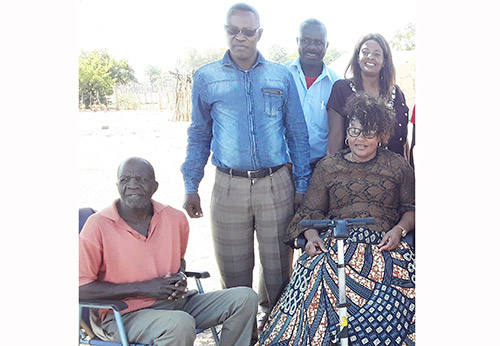Uakutura Kambaekua
OPUWO – Financial exploitation through government disability assistance and other safety nets is one of Namibia’s fastest-growing form of abuse, and persons living with disabilities, particularly children, are more vulnerable. This was said by Daniel Kaveta, liaison officer in the Division of Disability Affairs under the Ministry of Gender Equality, Poverty Eradication and Social Welfare in the Kunene region in a recent interview.
Kaveta stressed that some forms of exploitations are committed by those acquainted with the victim, such as a guardian or parent. He said people with disabilities often do not benefit from their social grants as their guardians or parents use the grant for their own expenses.
“It’s unpleasant to think about someone taking advantage of a person living with a disability who needs assistance, but these things are common and it happens here [Kunene]. Some of these guardians and parents now believe that we are their enemies when we try to investigate such cases. It’s very disheartening,” Kaveta fumed.
He also stated that people living with disabilities are less likely to complain due to their specific impairments, whether visual, hearing or mental. He said they are often overly trusting, thus not realising that they are being victimised.
“These abusers understand that their crimes are less likely to be reported,” he said.
Kaveta went on to say that there were recent instances of disabled persons being financially abused after the ministry discovered that money earmarked for them was being utilised for the needs of other children, leaving the owners vulnerable.
The majority of these cases involve orphans, he noted.
However, Kaveta stated that they are now acting as custodians of the
abused, receiving grants and purchasing necessities on their behalf, something he said the guardians are not too happy about.
To boost assistance for children with impairments, the Namibian government increased the benefit level for the disability grant for children under the age of 18 from N$250 to N$1 300 in April of this year.
Meanwhile, Kaveta stated that some parents and guardians refuse to register their children to receive grants and enrol them at schools or rehabilitation institutions for fear of stigmatisation.
He urged caregivers to do so as government facilities provide free services to people with disabilities.
-Nampa


